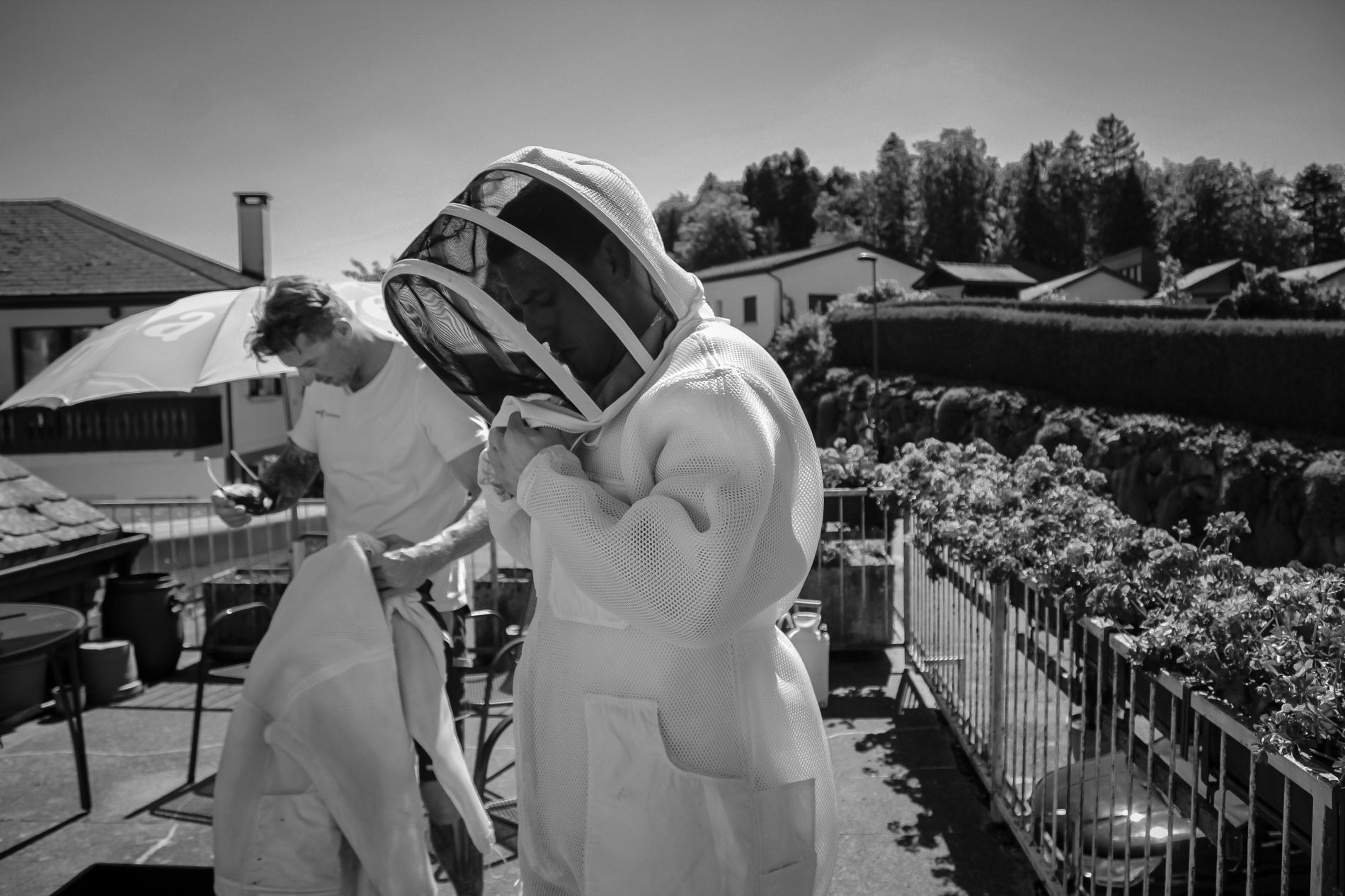
Fighting Asian hornets in La Tène
Have you discovered an Asian hornet's nest? We'll be on site quickly! Call now - Daily Mon-Sun 07:00-21:30. Contact us now: 058 510 22 54
Having the Asian hornet's nest removed
Vespa velutina, a hornet species originally from South-East Asia, has intrusively spread to Switzerland and the entire subcontinent. Despite its non-aggressive behavior towards humans, it has become infamous for its relentless pursuit of honey bees, causing significant concern among beekeepers. With astonishing swiftness, a small group of these hornets can attack and annihilate a bee colony within a few hours. If you have discovered a hornet's nest on your house, patio, shed, or in your blind box, contact our experts for hornet nest removal in La Tène!
Use the uncomplicated telephone service of the Hornet experts in La Tène and simply inform us at 058 510 22 54, we will be on site quickly so that you and everyone in your area feel completely safe again.
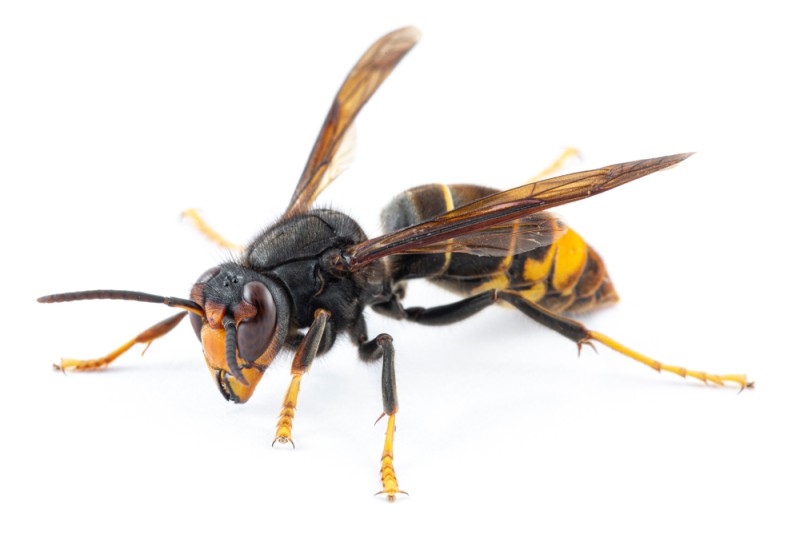

Appearance of the Asian hornet
Here are some characteristics that distinguish the Asian hornet:
1. Size: The queen can reach a length of about 3 cm, while the workers are slightly smaller and measure about 2.5 cm.
2. Color: The Asian hornet has a dark body that is almost black, with a yellow stripe at the back of the abdomen. Its face is orange-yellow.
3. Wings: The wings are dark and almost smoky gray.
4. Legs: The hornet has yellow tips on its legs, which is a striking distinguishing feature when it flies.
5. Nest: The Asian hornet's nest is often high in the trees, but it can also be found underground or in tall structures such as chimneys. It has an oval shape and is made of chewed wood, which gives the hornet a papery texture.
It is important to distinguish the Asian hornet from the European hornet (Vespa crabro), which is more harmless and a natural part of the European fauna. If you suspect you have found an Asian hornet nest near you in La Tène, you should report this to the local authorities, or using our reporting form, as they can spread quickly and be harmful to bees and other insects. To avoid being attacked by the flying inhabitants, you should hire a professional pest controller such as the Hornet Experts La Tène. We can identify the nest beyond doubt and take further steps to remove the Asian hornets professionally.
News about the Asian hornet in La Tène
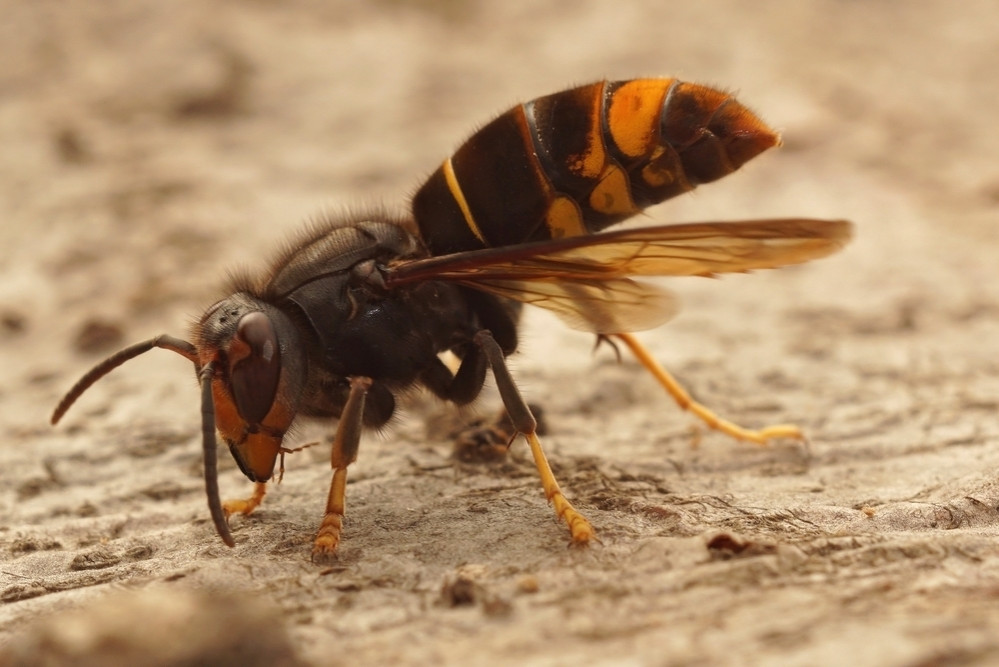
02.12.2025 Western Switzerland: Killer hornet eats bees
The territory of the Asian killer hornet has expanded considerably this year, with a notable increase reported in western Switzerland. This invasive species poses a significant threat to native bee populations, as bees make up the majority of its diet. The potential consequences are serious. Moreover, the hornet represents a danger to individuals with allergies to its venom.
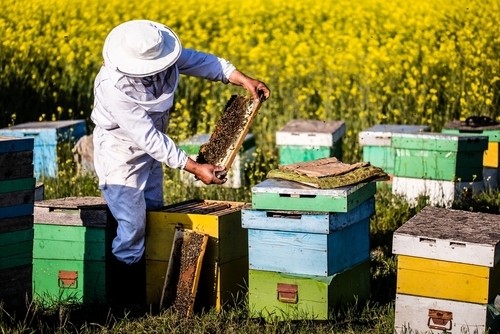
25.11.2025 Serious concerns about the bee population!
Asian hornets are inflicting significant harm on beehives across multiple parts of Europe, as reported by local beekeepers. Even a small number of hornets can destroy an entire bee colony within hours. This sharp decline in pollinators could have serious consequences for pollination, local ecosystems, and agricultural productivity.
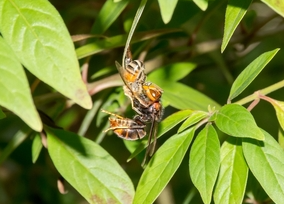
18.11.2025 Asian hornet doesn't just eat bees!
The danger it presents to insects is substantial!
The Asian hornet feeds largely on honeybees—up to 85 percent of its diet—alongside beetles and flies. This high level of predation not only poses difficulties for fruit growers but also further threatens already vulnerable bee populations.
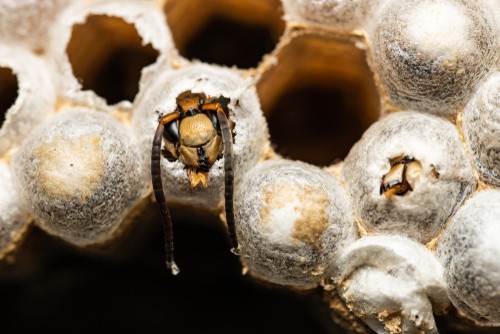
11.11.2025 How did the Asian hornet get to Europe?
The Asian hornet likely arrived in Europe unintentionally and has quickly expanded throughout France and nearby countries. Its adaptability to different environments and the absence of natural predators have contributed to its rapid spread. A single nest can generate several hundred new queens in one breeding season.
Asian Hornet Reporting Form
Please fill out all required fields and submit the form.
Help us!
If you discover an Asian hornet or a nest of this invasive species in La Tène, it is of the utmost importance that you report it immediately. The Asian hornet is not only dangerous to humans, but also poses a serious threat to native bee populations and the ecological balance in Switzerland.
Why is it important to report the find?
The presence of the Asian hornet, once established in certain regions, carries consequences for native insects, particularly honey bees. Their predation on bees leads to a decline in pollinator populations, consequently impacting the local flora and agricultural production. By reporting sightings, experts can react quickly, remove the hornets or their nests and thus prevent the spread of this invasive species.
Notification form for sightings
Preserving the harmony of Switzerland's ecosystems and our invaluable native insect populations necessitates your involvement in regulating the Asian hornet overpopulation. Please report any suspicions or sightings using our specialized reporting form. Together, we can take swift action and minimize the detrimental effects of this dangerous species.
Your contribution is crucial in the fight against the Asian hornet in La Tène. Together we can protect nature and maintain the balance of our ecosystems;
Thank you for your vigilant attention and your commitment to protecting our environment.
How dangerous is the Asian hornet?
The Asian hornet (Vespa velutina) is a predatory insect that originated in Asia and has spread in recent years to various parts of Europe, including France and now also Switzerland and in La Tène. Although it poses a threat to honey bees and native biodiversity, it is generally no more dangerous to humans than other wasp species. Nevertheless, there are some aspects to be aware of:
1. Threat to honey bees: The Asian hornet preys on honey bees, threatening native bee populations. A decline in bees can have a negative impact on pollination and thus on local flora and agricultural production.
2. Stings: As with other wasp and hornet species, the stings of the Asian hornet can also be painful. For most people, the stings are unpleasant but not dangerous. However, people who are allergic to wasp or hornet stings can suffer a severe allergic reaction, which in the worst case can lead to anaphylactic shock.
3. Aggressiveness: Although the Asian hornet is not necessarily more aggressive towards humans than other wasp species, it can become aggressive if it feels threatened, especially near its nest.
4. Ecological effects: Apart from the direct effects on honey bees, the spread of the Asian hornet can also disturb the ecological balance by affecting the populations of other insects.
Let's make sure to remember that the Asian hornet and the Asian giant hornet (*Vespa mandarinia*) are separate entities. Though related, the giant hornet, called the "killer hornet", is significantly larger and potentially more dangerous to humans due to its more powerful venom and the size of its sting.
If you have discovered a nest, call us immediately: 058 510 22 54
Our hornet professionals in La Tène are certified by the VSS.
Frequently Asked Questions About Asian Hornets in La Tène
With its potential to inflict highly dangerous and potentially fatal stings, the Asian hornet distinguishes itself as an insect species that far exceeds the danger posed by most other hornets.
Sporting an imposing size, the Asian hornet can grow up to 3 cm long. Its slender, noir physique showcases a captivating tapestry of dense orange, yellow, and black stripes.
Serious caution is warranted due to the Asian hornet's high toxicity to humans. Its bite can cause agonizing pain and trigger allergic reactions, demanding careful handling and appropriate safety measures.
Humans should exercise great caution around the Asian hornet, considering the severe toxicity of its venom that can cause intense pain upon biting and possibly incite allergic reactions.
The Asian hornet's venomous sting sets it apart as a dangerous species. Its sting is more painful than that of other wasps and can result in allergic reactions.
If you happen to spot an Asian hornet, it is imperative to inform a regional officer specializing in the protection of wild bees or the pertinent department within the responsible Ministry of Agriculture by filing a detailed report.
Reporting Asian hornets is essential to avoid attacks and restrict their propagation. This specific insect species is highly territorial and known for its aggressive behavior.
To effectively control Asian hornets in Switzerland, professional hornet control services are required. It is advisable to call a reputable pest control service provider for prompt resolution.
Despite lacking protected status, the Asian hornet should be subject to meticulous monitoring to prevent their unrestricted expansion.
The Asian hornet showcases two hibernation modes: collective hibernation or solitary hibernation, taking refuge in wall corners, buildings, garden sheds, occasional structures, or tree hollows.
Would you like more information about Asian hornets? Then take a look at our FAQ's about Asian hornets.
Private inquiry form
For an uncomplicated request to remove an Asian hornet's nest, please use our contact form for private individuals.
Real estate inquiry form
Use our property management order form to request the removal of an Asian hornet's nest.




_6.jpeg)
_6.jpeg)
_6.jpeg)
_6.jpeg)